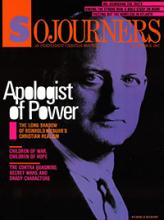To look into the eyes of Gustavo Parajon is to see compassion and integrity. A Baptist pastor and medical doctor, Parajon is president of the Evangelical Committee for Aid and Development (CEPAD). Representing 46 denominations, CEPAD is Nicaragua's largest evangelical organization and one of the world's most effective and trusted relief and development agencies.
Parajon's eyes have seen too much suffering--too many deaths of fellow church workers and medical personnel, too many friends lost in brutal attacks by the U.S.-sponsored contras. Over the four years of our friendship, Parajon has occasionally remarked that he would like simply to be able to focus on his ministry and medical work; but Nicaragua's situation has forced him into other roles.
Gustavo Parajon, perhaps more than any other Nicaraguan Christian, has been called upon to interpret the situation in his country to the literally thousands of U.S. Christians who have gone to Nicaragua in an effort to understand what is happening there. He has also served as a mediator in some of his country's most intense conflicts. He is widely trusted and respected in Nicaragua--by church people, government leaders, even many people who would disagree with him politically--because he is a man of honesty and integrity, a man of God. Over the years U.S. Christians too have come to know Gustavo Parajon as a person who can be trusted.
Read the Full Article

